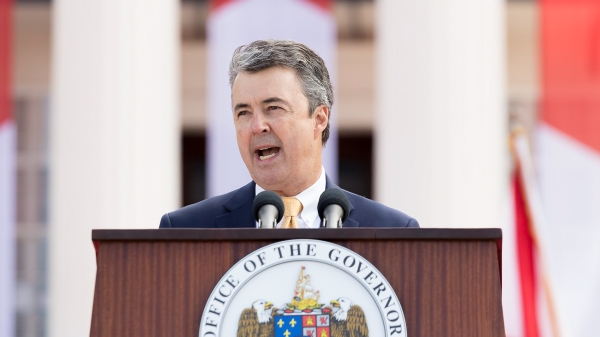|
Getting your Trinity Audio player ready...
|
A new bill introduced Wednesday by Alabama House Republicans would make it possible to charge women who undergo abortions with murder.
Sponsored by Rep. Ernie Yarbrough, R-Trinity, and co-sponsored by Reps. Ritchie Whorton, Mack Butler, Mark Gidley and Ben Harrison, the bill’s synopsis paints it as legislation seeking to protect women who lose their pregnancies due to domestic violence or other situations out of their control.
But it also specifically repeals “the provision (of law) that prohibits the prosecution of homicide or assault following any abortion and the provision (of law) that prohibits the prosecution of homicide or assault against any woman with respect to her own unborn child.”
“The bill would also provide that prosecutions of homicide or assault where the victim is an unborn child shall be treated the same as prosecutions of homicide or assault of a person born alive,” the bill states.
The legislation undercuts promises from Republicans, and from Alabama Attorney General Steve Marshall, made after last June’s overturning of Roe v. Wade by the U.S. Supreme Court, that the state would not seek to charge women with crimes for seeking abortions but would instead focus solely on providers.
Marshall had originally made comments to a conservative media outlet that the state could use other state laws to charge women who underwent abortions and might also seek to prevent women from traveling to other states, but he later backed away from both.
In the immediate aftermath of the Roe decision, Marshall told numerous news outlets that Alabama’s abortion law – one of the toughest in the nation, with no exceptions for rape or incest – did not criminalize mothers.
He later indicated that his office might try to use Alabama’s chemical endangerment law to prosecute women who took medication to end their pregnancies. He also backed away from those threats when challenged by lawmakers and others.
But as the Roe decision drew anger and election consequences from women, moderate Republicans have sought to soften the party’s stance. There have even been discussions within the party of congressional action that would offer broad exceptions to state laws, because the abortion bans have been so unpopular outside of the small, fanatical rightwing base of voters.
In Alabama, because of gerrymandering, that small base of voters holds tremendous sway in a state Republican Party with a supermajority. Despite polling showing Alabama’s full ban on abortions to be very unpopular overall within the state, Yarbrough’s legislation might be hard to vote against for his ALGOP colleagues.





















































